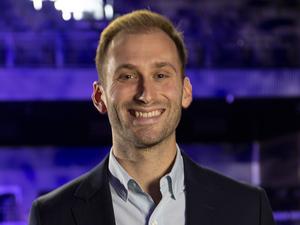
For St. Louis startup Geneoscopy Inc., its top priority is developing new diagnostic tools for gastrointestinal health. However, co-founder and Chief Scientific Officer Erica Barnell says the startup “simultaneously has been attempting to innovate on other fronts.”
Currently, it’s attempting to innovate how clinical trials are conducted. As Geneoscopy has kicked off a clinical trial for its at-home, preventive screening test for colorectal cancer, it says it has employed a novel approach that bucks the traditional model for securing study participants. Its strategy is one it contends offers a solution to a long-standing problem: an underrepresentation of minorities in clinical trials.
What’s more, the St. Louis startup says it’s already seeing promising results. In data it released this month, Geneoscopy said of those who have expressed interest in enrolling in the trial, about half are women and more than a third are racial minorities.
Geneoscopy, founded in 2015 by Barnell, CEO Andrew Barnell and Director of Data Science Yiming Kang, last year started enrolling patients in its CRC-PREVENT clinical trial, which aims to determine the safety and efficacy of its screening test for colorectal cancer. In 2021, the startup closed on $105 million in financing to advance its technology.
In structuring its ongoing clinical trial, Barnell said Geneoscopy has adopted a “decentralized recruitment strategy” designed to enroll a more diverse roster of participants for the trial. A lack of diversity within clinical trials has been spotlighted as a challenge for the medical industry, with a June 2021 Harvard Business Review article noting “clinical trials primarily enroll white, male patients, with consistent underrepresentation of women, the elderly, and people of color.” Black individuals make up only 5% of clinical trial patients, according to a report recently cited by the Association of American Medical Colleges.
Erica Barnell said Geneoscopy has eschewed the traditional clinical trial model that involves establishing sites that utilizes doctors to help recruit participants. In Geneoscopy’s case, she said that would have involved partnering with endoscopy centers to find patients who needed a colonoscopy and having doctors inquire if those patients had interest in being in the startup’s clinical trial. Instead, Geneoscopy has focused on using a digital campaign that using advertisements on social media networks and websites to find participants and enroll them in the study.
“What we observed was 85% of the patients that are engaging with our digital platform are actually not signed up for a colonoscopy at the time of enrollment, and those individuals would have otherwise been completely missed using traditional approaches.” Barnell said. “The result of that is we’re actually capturing the patient population that needs a noninvasive diagnostic for colorectal cancer screening, because they are individuals who otherwise would not be going to receive a colonoscopy.”
Since starting the enrollment process last year for its clinical study, Genesocopy says 32,934 eligible individuals have indicated interest in being part of the study. The demographics of those individuals breaks down as follows, according to figures published by the St. Louis startup:
- 21% are Black/African American
- 3% are Asian and 1.6% are Native Hawaiian, Pacific Islander, American Indian or Alaskan Native
- 9.4% are Hispanic/Latinx
- 33% have income under $29,999
- 49% are female
In addition to providing a diverse pool of participants for its clinical trial, Barnell said Geneoscopy's recruitment strategy also has been a boon to its bottom line, providing a more cost-effective approach.
“It’s much cheaper to enroll patients using Facebook than to go set up a site for $75,000 per site. It’s much cheaper to compensate the patient instead of trying to compensate the physicians and the nurses at the endoscopy centers who are enrolling patients,” she said.
Geneoscopy expects to close enrollment for its clinical trial in the first quarter this year with hopes of commercially launching its product next year, Barnell said.











